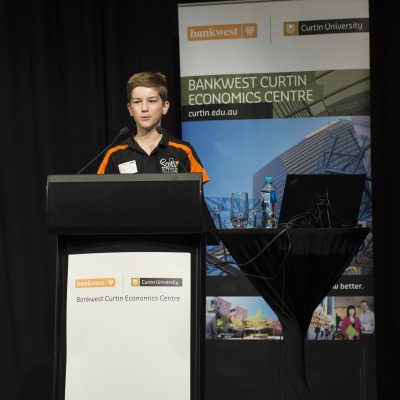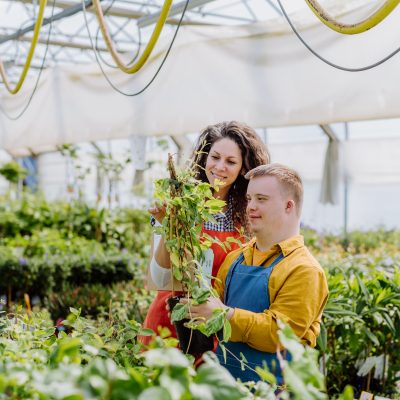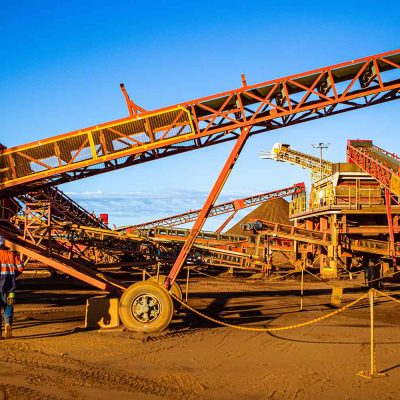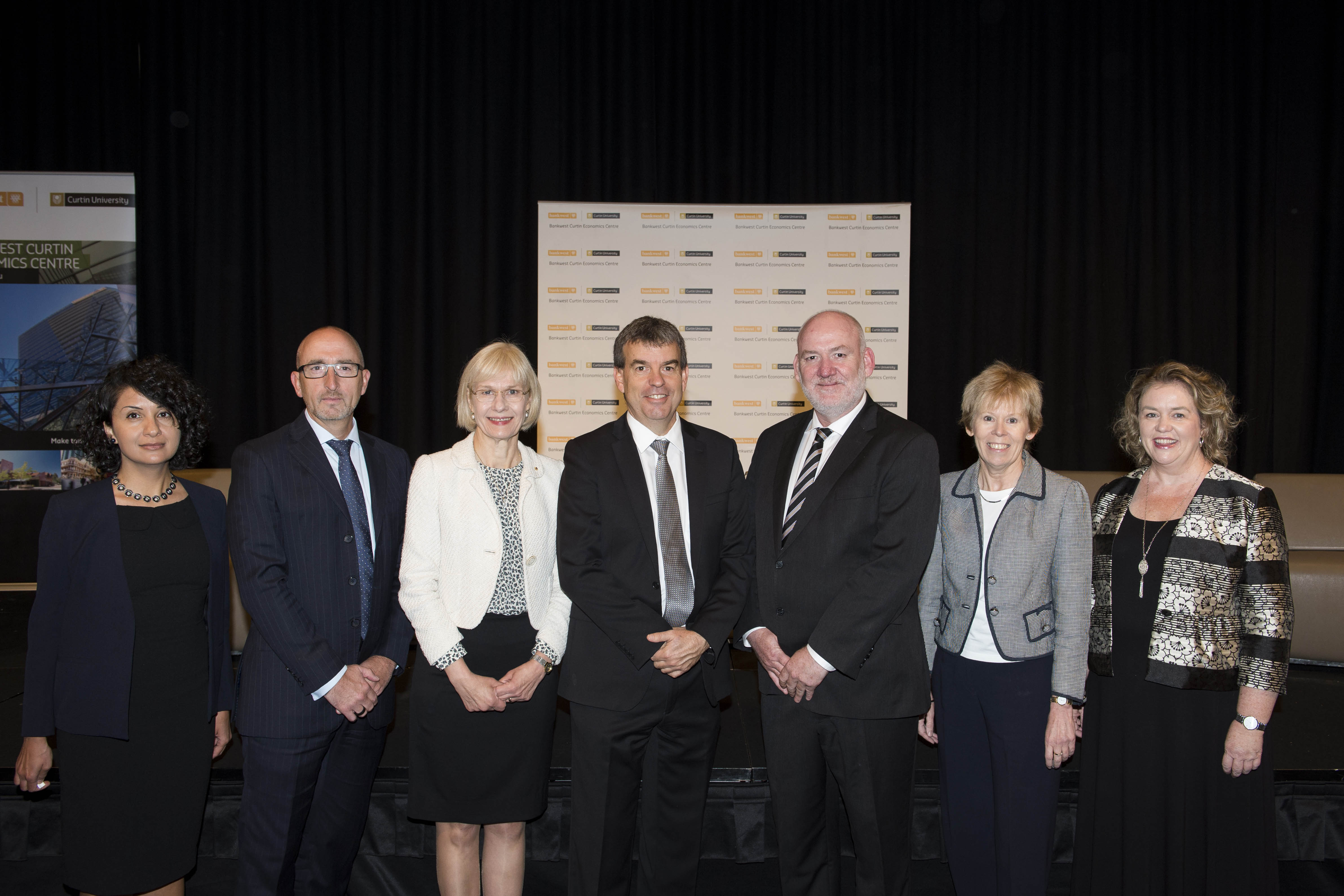BCEC launches Future of Work report

Rebecca Cassells, Deputy Director
Kelly Pohatu, Events and Communications Coordinator
BCEC’s latest Focus on the States report, Future of Work in Australia: Preparing for tomorrow’s world, was launched on Friday 13 April, and examines the way in which the organisation of work is changing – from workforces to workplaces – and the implications of these changes for Australia.
At the heart of this launch was a moving Welcome to Country delivered by Noongar elder, Robyn Collard and indigenous performers from the Moorditj Mob at Wesley College.
In welcoming guests to the launch, Scott Guerini, Year 7 student and Telethon Ambassador, spoke about his journey, one of determination and courage, and his aspirations for the future.
“Ask me to walk a Marathon, no worries, ask me to sit down and do school work all day and we have a bit of a problem,” Scott said.
“My school have realised that students of today will need a certain set of skills when they head to work, so they are approaching teaching in different ways to ensure we are critical thinkers who are innovative, engaged, persistent, resilient and can work independently and collaboratively. So hopefully that will help me along the way.”
Before introducing the Hon. David Kelly MLA, the Minister for Innovation and ICT, Scott launched BCEC’s Future of Work video showcasing friends at his local gym talking about what they think work will look like in the future, to give Scott an idea of what is to come.
The Hon. David Kelly acknowledged some of the future leaders in attendance – students from five public and private schools across Perth including St George’s Anglican Grammar School, Wesley College, Yule Brook College, Perth Modern School and Scotch College.
Minister Kelly went on to highlight the important role technology plays in creating more opportunities for the next generation, and the need for a collaborative approach to ensure we make the most of those opportunities.
Launching the report, Centre Director and co-author, Professor Alan Duncan said the Australian labour market is changing and precarious employment was on the rise.
“Our index of precarious work reveals that higher-skilled occupations such as professionals and managers have more stable employment, while traditionally male-held positions such as labourers and machinery operators and drivers are in the most precarious job circumstances,” Professor Duncan said.
BCEC Senior Research Fellow and report co-author, Dr Astghik Mavisakalyan, said that in moving towards the labour market of the future, there will inevitably be a transformation in the nature of work and the workplace.
“People are likely to change jobs more regularly in the future, to work fewer hours, or to hold more than a single job at some point in their careers.”
Professor Duncan added that as the Australian labour market moves towards a more highly-skilled workforce, it is critical that up-skilling programs are available to those workers at risk of being displaced in the new world of work.
“It is imperative that all workers – particularly low-skilled men – have access to retraining and education opportunities that smooth their transition to new, higher skilled jobs, or into other forms of employment,” Professor Duncan said.
Expert panellists agreed a collaborative approach is needed across community, government, industry and higher education.
Dr Astghik Mavisakalyan, Senior Research Fellow, Bankwest Curtin Economics Centre, Andy Weir, Executive General Manager Enterprise Services & Chief Information Officer, Bankwest, Professor Deborah Terry AO, Vice-Chancellor, Curtin University, Hon. David Kelly MLA, Minister for Innovation and ICT; Science; Water; Fisheries and Forestry; Professor Alan Duncan, Director, Bankwest Curtin Economics Centre, Anne Driscoll, Director General, Department of Training and Workforce Development and Rhonda Brighton-Hall, Founder and CEO, mwah. Making Work Absolutely Human
Rhonda Brighton-Hall, Founder and CEO, mwah. Making Work Absolutely Human said it is imperative to challenge and re-vision the way we work.
“The importance of using this period of change is to re-design jobs in a way that better meet the needs of workers but also improve productivity for businesses,” Ms Brighton-Hall said.
When asked how Bankwest is helping its workforce adapt to the challenge of global digital disruption, Andy Weir, Executive General Manager Enterprise Services & Chief Information Officer at Bankwest said it starts with transformative leadership.
“It’s far less around traditional command and control type environments and enabling more nurturing and servant leadership environments whereby we are encouraging people to experiment; to encourage employees to test, fail, learn and iterate. It’s about asking how we enable our employees to perform at their best,” Mr Weir said.
With precarious employment rising rapidly, Anne Driscoll, Director General, Department of Training and Workforce Development discussed the importance of education and training in this period of change.
“The importance of lifelong education and training and the need for new tailored micro-credential courses is absolutely essential to prepare us for the future of work, and the need to involve partnerships between educators, industry and government,” Ms Driscoll said.
In closing the event’s proceedings, Curtin University Vice-Chancellor, Professor Deborah Terry AO, said that there are opportunities in these times of change.
“From a higher education perspective, we know that we need to prepare our graduates for lifelong learning. We need to work to ensure that no segments of our community are left behind in this period of change,” Professor Terry said.
Report co-authors Professor Alan Duncan, Associate Professor Rebecca Cassells, Dr Astghik Mavisakalyan, Professor John Phillimore and Dr Yashar Tarverdi authored an article in The Conversation, detailing the report findings.
The report also generated extensive media interest, including articles in The West Australian, Australian Financial Review and Sydney Morning Herald, and interviews with Professor Duncan airing on ABC TV and radio stations 2GB and 6PR.





